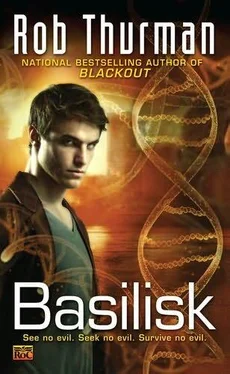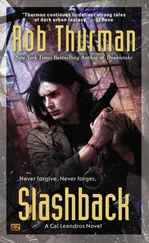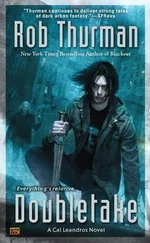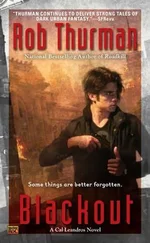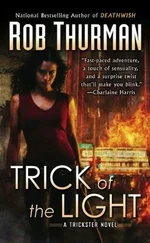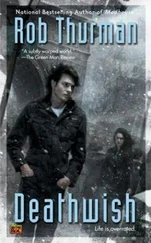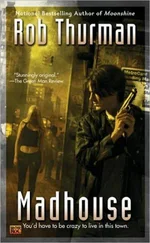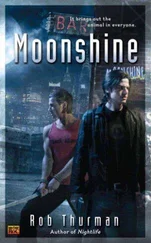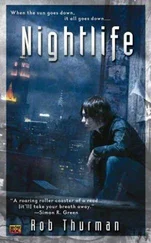Rob Thurman - Basilisk
Здесь есть возможность читать онлайн «Rob Thurman - Basilisk» весь текст электронной книги совершенно бесплатно (целиком полную версию без сокращений). В некоторых случаях можно слушать аудио, скачать через торрент в формате fb2 и присутствует краткое содержание. Год выпуска: 2011, ISBN: 2011, Издательство: ROC, Жанр: Фантастика и фэнтези, на английском языке. Описание произведения, (предисловие) а так же отзывы посетителей доступны на портале библиотеки ЛибКат.
- Название:Basilisk
- Автор:
- Издательство:ROC
- Жанр:
- Год:2011
- ISBN:978-1-101-51716-1
- Рейтинг книги:3 / 5. Голосов: 1
-
Избранное:Добавить в избранное
- Отзывы:
-
Ваша оценка:
- 60
- 1
- 2
- 3
- 4
- 5
Basilisk: краткое содержание, описание и аннотация
Предлагаем к чтению аннотацию, описание, краткое содержание или предисловие (зависит от того, что написал сам автор книги «Basilisk»). Если вы не нашли необходимую информацию о книге — напишите в комментариях, мы постараемся отыскать её.
Basilisk — читать онлайн бесплатно полную книгу (весь текст) целиком
Ниже представлен текст книги, разбитый по страницам. Система сохранения места последней прочитанной страницы, позволяет с удобством читать онлайн бесплатно книгу «Basilisk», без необходимости каждый раз заново искать на чём Вы остановились. Поставьте закладку, и сможете в любой момент перейти на страницу, на которой закончили чтение.
Интервал:
Закладка:
“We screwed with the engine some,” she grunted. “Jake, stop being such a whiny bitch. They’ll fix it. They’ll go and you can go back to knocking up sixteen-year-olds.”
That was my cue. I went over to the Cessna 350 and opened the cowling to peer at the engine. You can’t learn to fly a plane via instructional video if you don’t know what parts go where . . . at least not safely. Luckily, my partners in crime didn’t know anything about planes of any kind. They’d only yanked whatever to them seemed yankable—idiots indeed. Twenty minutes later and after a run-through of the electronic checklist, we were in the air. And, yes, I might have hit the top of one of the pine trees, but that was why I said theoretically so often. It left room for the tiny errors, the learning curve. None of that mattered when I looked at where we were. We were flying in a blue sky, the world and its dangers gone beneath us. It was . . . freedom. It was glory. It was a wonder I’d never seen, although it was an unsteady wonder.
Things are never as easy as they appear on the Net or in instructional videos. I blamed an imperfect world for that. I was a genius—I wasn’t blaming myself, because it obviously was not my fault. Stefan didn’t throw up as I gradually turned theoretical into a reality. I had to give him credit. He turned green, he closed his eyes, he cursed nonstop, but he didn’t vomit, and it was an extremely bumpy ride for at least fifteen minutes. Godzilla did throw up, down Stefan’s shirt as he wrapped himself tightly around my brother’s neck and shivered. He wasn’t a fan of theoretical flying either. I was surrounded by critics.
That didn’t improve five hours later when I landed at the new Institute. Stefan, who hadn’t been at all interested in the details of maximum cruising speed, fuel capacity, maximum climb rate, called it crashing, but I think that was an exaggeration. Considering his lack of curiosity about all things plane related—except for the copilot’s three-point restraint system, or as he referred to it, “Where’s the goddamn seat belt?”—I didn’t think he had much room to judge.
The ground’s rapidly approaching brown dirt, the unforeseen difficulty in getting the nose up, the speed down, but not too far down, and the bouncing off a jutting rock camouflaged the same color as the dirt—it did get the adrenaline pumping. There was no doubt about that, but it didn’t change matters.
“Gravity, genius,” Stefan groaned, holding on to his seat so tightly with one of his hands that it would probably cramp for days. The other hand held something else. “Gravity leads to crashes.”
Despite the bump on my head and the blood dripping down Stefan’s forehead, it definitely wasn’t a full-on, complete crash. It was at least a controlled crash and that was the next best thing to a legitimate landing. That was my opinion and I was sticking with it. Besides, it was not my fault. I didn’t create the often-inconvenient laws of physics. “Gravity”—I waved a dismissive and slightly shaking hand at Stefan’s bitching—“schmavity. It’s all relative.”
“I thought that was time, Einstein,” he pointed out, wiping blood onto the dried ferret vomit already on his shirt, “not schmavity.” Why did he have to be smart at the least timely moment? It was close enough to a landing, considering I’d taken off and flown the entire way via Internet instruction. A slight hiccup in the landing did not a catastrophe make. But what we had seen at the Institute with a bird’s-eye view, what we found there at a closer—God, too close—look, wasn’t a catastrophe. It was worse.
It was a nightmare—the entire, oblivious world’s worst nightmare.
The bodies were everywhere.
The stench of rot made the air almost unbreathable.
This Institute had been set up about seventy-five miles out in the desert from Barstow, California. The first one had been in the Everglades outside Miami. Isolation was important when you were setting up a facility that looked like a prison—that was a prison.
Inside it was identical to the one where I’d grown up. Cheap tile, battleship gray walls, fluorescent lights, no windows—home, sweet home. Even the bodies were the same, in a way, only there were more—many more. I’d seen a few at my Institute. Sometimes a “student” would lose it, go flat-out psychotic, and break in a second. The crazed individual would usually kill a few instructors before the guards shot him—and the guards were everywhere. Two or three bodies a year was about average. You got used to it. You can get used to anything if you want to survive. But I hadn’t seen anything like this before.
Instructors, researchers, guards littered the halls, the labs, the empty classrooms. Some were flat on the floor with blood that had dried around their heads after it had exploded out of their ears, noses, and mouths. Some were curled up, appearing as peaceful as if they were asleep . . . if they hadn’t been in their second week of decomposition. They were bloated with green and brown stains showing through their clothes. That didn’t bring “peaceful” to mind.
There were students too, about fifteen. About half were shot in the head and half were spread-eagled, surrounded by the stain of every cell of blood in their body. If it hadn’t been dark brown and flaking on the tile, it almost would’ve looked like wings spread around them—as if they were angels. Only one student could do that to another: Wendy. Some students were more powerful than others, but to be good assassins, a good product, we all had to be fairly equal in power to be useful, to bring a good price, and not be competitive to the bidders.
That equality meant that if a student tried to hurt another student, it didn’t work. We could protect ourselves. If one started to cut off the blood to my brain, I could keep those vessels open. If one tried to stop my heart, I could reverse it before it had time to take effect. Students could not hurt other students. One was an immovable object; one was an irresistible force, like Stefan and I emotionally. It was a waste of time.
But then Wendy had come along and no one else was half as powerful as Wendy. She was the exception to the rule when I’d been kept prisoner years ago. No one had been able to protect themselves from her then. It had been lucky for her maker that Wendy liked the Institute in those days. . . . Top of her class in every way, she couldn’t wait to get out into the real world and do what she’d been created to do. She’d never caused any problems. The better she was, the faster she “graduated” and she knew it. If they gave out gold stars for being a good little assassin, she’d have had a wall full of them—a galaxy of the dead.
Things change.
People, made in a lab or the old-fashioned way, change too.
I couldn’t take my eyes off the dead students. It was too bad those left behind hadn’t thought of that.
“This is a rebellion. Looks like some kids finally got pissed off at their keepers and showed them exactly what they’d learned.” Stefan’s hand was on my shoulder, squeezing tightly as I stared down at two brown and broken angels. It was two girls, both with red hair. That was the only way to recognize them, the red hair. Lily and Belle. Tiger Lily and Tinkerbell. They’d needed enough girl names to balance out the Michaels and Peters. No one was good at the Institute. We couldn’t be, I’d told myself long ago in my own sterile prison room. The best we could hope for was indifference to our fate if we refused to kill. But was that good? Truly good? I didn’t know. Then Stefan came along and told me I was good. Too good, he emphasized from the self-defense point. It drove him nuts that I wouldn’t kill to save my own life.
Except for the one time, when I was fourteen, when I was surprised and attacked in that Institute test. I woke up some nights with the sharp sensation of his knife against my throat, the ephemeral feel of his heart turning to a useless sack of blood under my hand where it rested against his chest. I saw his eyes go vacant again and again. It was a memory that wouldn’t let me take another life, not for any reason.
Читать дальшеИнтервал:
Закладка:
Похожие книги на «Basilisk»
Представляем Вашему вниманию похожие книги на «Basilisk» списком для выбора. Мы отобрали схожую по названию и смыслу литературу в надежде предоставить читателям больше вариантов отыскать новые, интересные, ещё непрочитанные произведения.
Обсуждение, отзывы о книге «Basilisk» и просто собственные мнения читателей. Оставьте ваши комментарии, напишите, что Вы думаете о произведении, его смысле или главных героях. Укажите что конкретно понравилось, а что нет, и почему Вы так считаете.
